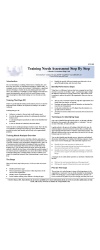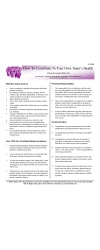Category: FAQ-Listening & Assertiveness
Important: Practical Limits On Assertiveness and Listening
While in theory, the use of assertive skills and various forms of active and reflective listening should work in real life, the reality is that they often do not work the way the experts contend, or the books teach us. You should know about this before you jump in to learn and use assertiveness and certain listening skills.
Effective communication depends on both parties playing “by the same rules“. When both people play by the same rules and respond in predictable ways in their responses, skills like assertiveness and reflective listening work very well. For example, two social workers who understand the “rules” of assertive techniques or active listening, and playing by those rules can be very successful conversing using these kinds of skills. Both value the skills, and both respond according to the “book”.
The problem is that people do not play by the same communication rules. One of the best examples regards certain active listening techniques. Let’s say you are interacting with someone about a somewhat emotional topic. You decide you use active listening and paraphrasing (eg. “If I understand you correctly, you feel like you boss has treated you unfairly and…“. The other person responds: “Don’t you dare patronize me, or treat me like you’re a shrink“.
What’s happened here? You are playing by a set of communication rules, while the other person is using another. To him, your use of listening sounds patronizing (this happens frequently because these kinds of response are rare in untrained “listeners”. You feel insulted and confused. You may get angry and strike back since you’re only trying to help.
This kind of thing happens often. That doesn’t mean you shouldn’t give up on these and other communication techniques, but you need to be aware that people may perceive them exactly opposite to what you intend. And, you need to prepare yourself for unexpected responses so you don’t over-react when your use of these techniques is greeted with anger, disdain, or even insulting remarks.
Assertive communication and listening are two sets of skills commonly described as essential to effective interpersonal communication. It’s true they are important, but what people don’t tell you is that these sets of skills have limits, don’t always work, and in some situations, are simply NOT advisable.
On this page you can access in-depth information about assertiveness and listening techniques, their uses, and when they should not be used, or are likely to fail.
Myths and Misconceptions About Listening
Common Misconceptions About Listening Listening ability is related to the intelligence of the listener Research indicates that while there may be a slight link between the intelligence of the listener and listening ability, the relationship is very slight. Daily…
Eight bad habits that impede listening – part II
Ineffective Habits – Barriers To Listening …continued. View part I of Eight Bad Habits That Impede Listening Listening Only For Facts Effective communication is based on understanding both the factual content of what someone is saying, AND understanding the emotions,…
Eight Bad Habits That Get In The Way Of Listening – Part I
Bad habits will interfere with your ability to listen and hear It’s fair to say that in our society, we give lip service to the importance of listening to others but in practice we do not live in a society…
What Is Assertive Communication?
Overview of Assertive Communication The Core Principles of Assertive Communication Assertiveness, or assertive communication has become a commonly trained method to help people communicate so that, at least theoretically, both parties can talk about, and have their needs met in…
Assertiveness Doesn’t Always Work
Assertiveness In Theory and In Practice A Limitation On Assertiveness Effectiveness There’s no question that being assertive is a better way to communicate your needs and wants, at least compared to being aggressive, or just accepting situations that cause you…
How does listening to others increase the likelihood others will listen to me?
Does Listening Increase the Chance That We Will Be Heard We have a tendency to be more interested in speaking and being heard, than in listening and hearing and understanding others. Most of us are afflicted with this minor touch…
What are the major barriers to listening that I should consciously try to overcome?
Taking steps to be a better listener Effective listening doesn’t just happen. It takes some work and diligence to improve. Here are some of the most common barriers to effective listening from the point of view of the listener. You…
What is “critical listening?”
Critical listening is a form of listening that is usually not mentioned, since it involves analysis, critical thinking and judgment. Making judgments during listening is often considered as a barrier to understand a person, and there’s a lot of truth…
What is “dialogic listening?”
The University of Colorado website has, in addition to a definition of dialogic listening, a great glossary of listening and communication terms and defintion. It defines dialogic listening as: Dialogic listening is similar to active listening, although it emphasizes conversation…
Why does my attention drift when I’m listening?
Relax! It’s normal to have your attention drift when you are listening — even when you are actually trying. Your ability to focus your attention and listen can be developed by practice, and self-awareness, but it’s useful to understand why…





